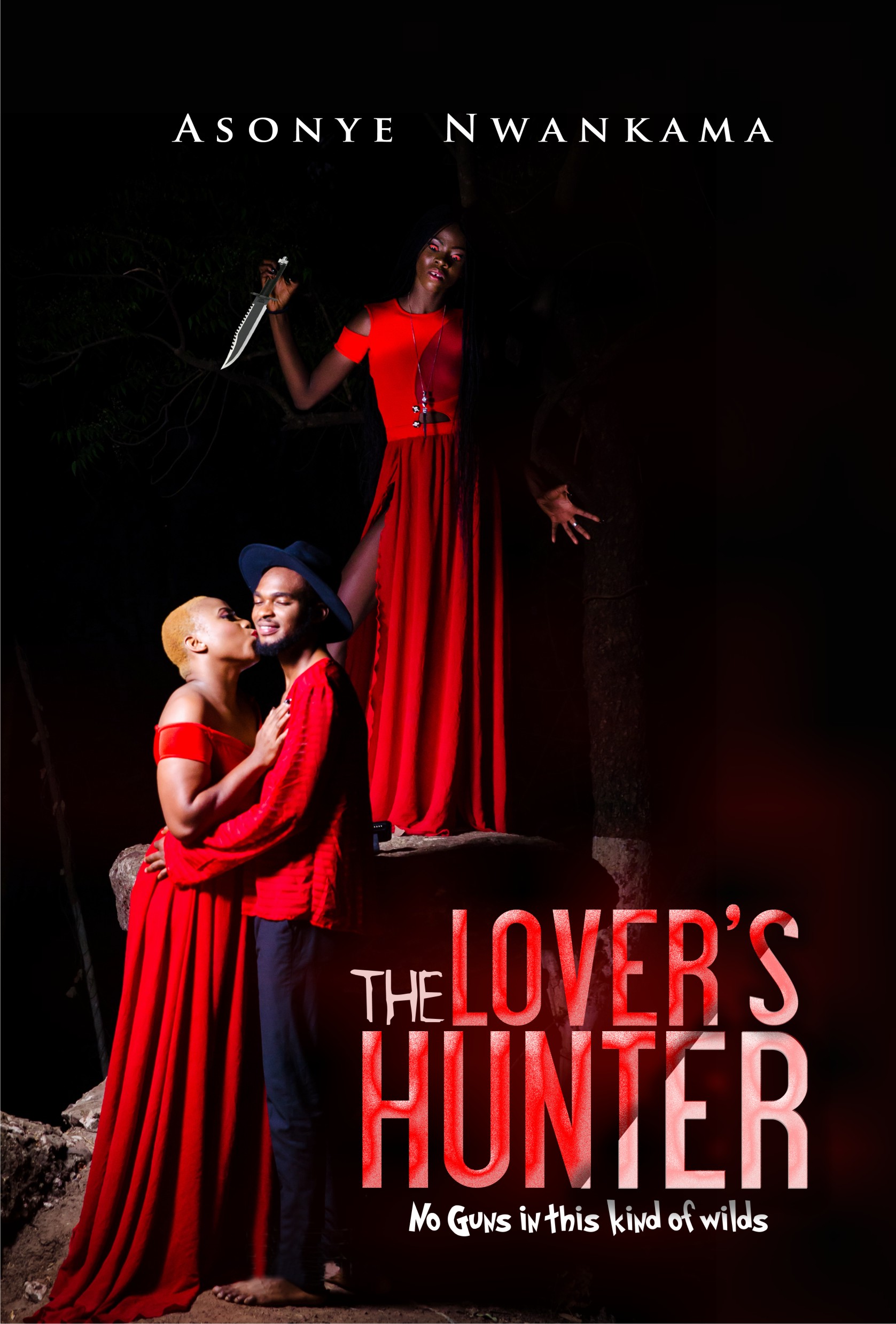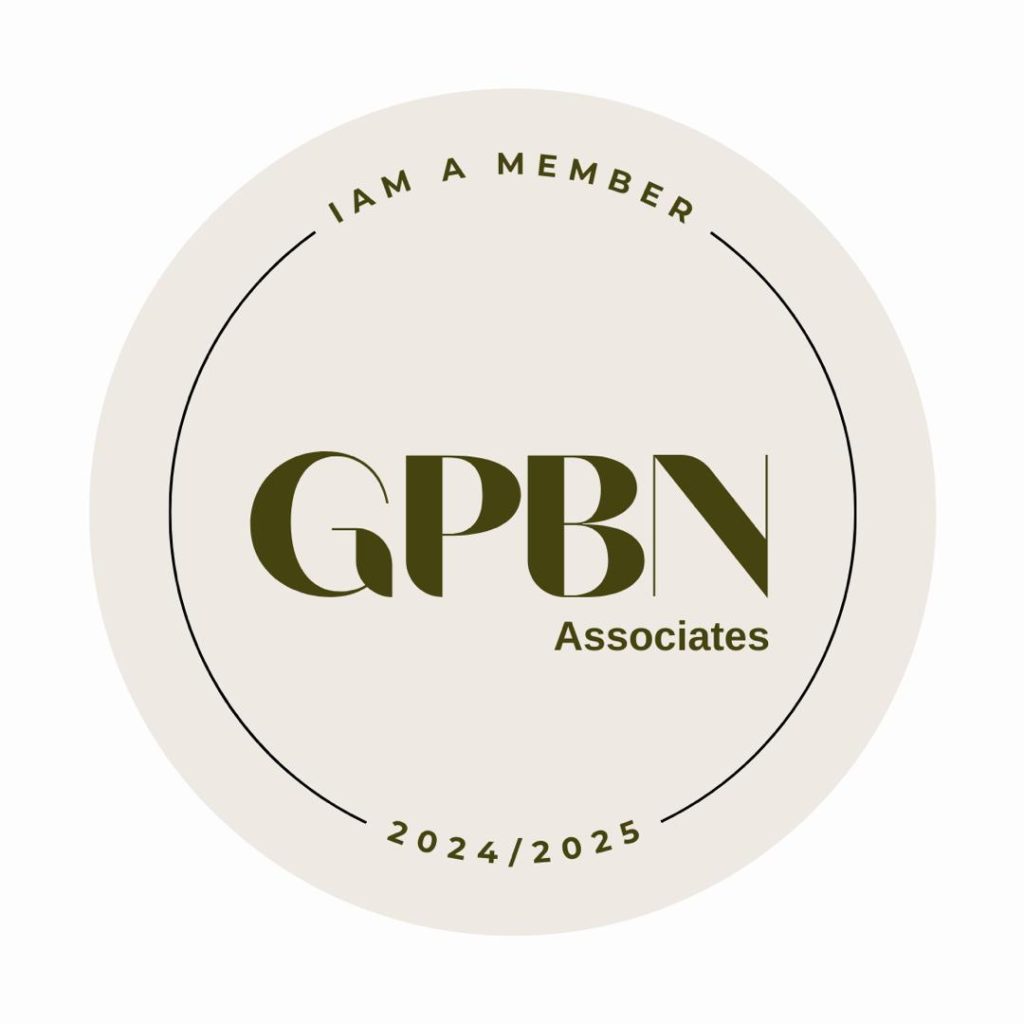

Religion
SIGNIS 2025 Conference concludes in Enugu with Strong Call for Rethinking Religious Imagery
The Holy Ghost Cathedral, Enugu, came alive this week as the diocese played host to a vibrant convergence of theologians, artists, media professionals, and Church leaders at the 2025 SIGNIS Humanitarian Foundation Conference and Regina Cultural Art Exhibition. Themed “Sacred Symbols, Cultural Identities: Rethinking Iconography and Imagery in Global Religions,” the four-day event opened with powerful reflections on the evolving role of visual communication in evangelization.
The two-day conference was held on Thursday, 13th, and Friday, 14th June 2025.
2025 SIGNIS Humanitarian Foundation is an arm of SIGNIS AFRICA, the Catholic Association for Communication. It is a Non-Governmental and Non-Profit Organization founded on the basic principle of human communication which is to foster communion. The Foundation thus has the aim of assisting SIGNIS AFRICA to communicate love to humanity.
In his welcome address, the Diocesan Director of Communications, Rev. Fr. Anthony Aneke, representing the Bishop of Enugu Diocese, Most Rev. Callistus Chukwuma Onaga, extended warm hospitality to delegates and guests. “This gathering is not merely a conference,” he said, “it is a mission field where faith meets media and culture, where the Gospel encounters technology, and where the Church’s voice strives to remain a lamp shining in the digital wilderness of our time.”
Special appreciation was extended to Rev. Fr. Prof. Walter Ihejirika, President of SIGNIS Humanitarian Foundation, Nigeria, for his leadership, and Sr. Mary Lucy Okwuokwulu for her vision and courage in bringing the conference to life. The local organizing committee was also commended for their dedication in ensuring a smooth and inspiring event.
A major highlight of the two-day event was the unveiling of a specially curated artwork of the Virgin Mary, celebrating Marian devotion through a culturally resonant lens. The piece, designed by Rev. Sis Mary Lucy Okwuokwulu and blessed during the exhibition opening, beautifully embodied the conference’s theme, demonstrating how traditional iconography can be reimagined to reflect local identities while upholding sacred truths.
In his welcome address, the President of SIGNIS Humanitarian Foundation, Rev. Fr. Prof. Walter Ihejirika, emphasized the need for deeper research and a renewed commitment to evangelization through images and iconography. He called for visual expressions of faith that not only reflect the creative spirit of the people of God but also resonate meaningfully with local cultures and communities.
Adding significant weight to the discourse was Bishop Gerald Mamman Musa, the pioneer Bishop of Katsina Diocese, whose keynote presentation titled “Windows to the Divine: Iconography, Religious Images, and Communication as Instruments of Evangelization, Catechesis, and Enculturation in Nigeria” challenged the Church to rethink how it uses images in faith formation.
Bishop Musa advocated for the inclusion of “visual literacy” in parish catechism programs, insisting that integrating religious imagery into sacramental life and catechesis can deepen evangelization efforts. “The faithful must be taught that religious images are not idols,” he said, “but signs pointing to the divine.”
The Bishop called on dioceses and seminaries to train artists capable of merging theological depth with African artistic forms such as wood carvings, textiles, beadwork, and murals. He also stressed the importance of collaboration: “Artists must not work in isolation. Theologians and clergy should collaborate with visual artists to ensure that religious images convey sound doctrine while resonating culturally.”
Bishop Musa urged Catholic digital influencers to promote doctrinally sound and visually compelling content online. He envisioned a Church in Nigeria producing high-quality digital icons and religious visuals that elevate both beauty and faith. He encouraged the use of African imagery in liturgical art, including altar designs, Stations of the Cross, stained glass, and statues, saying this would strengthen enculturation and meaningful religious communication.
He further proposed that the Catholic Bishops’ Conference of Nigeria (CBCN) consider organizing national exhibitions and workshops for Christian artists, to reward theological creativity and spark deeper dialogue between faith and culture.
Bishop Musa also used his presentation to address persistent challenges, including cultural alienation and western artistic domination in Nigerian religious iconography. “Most religious images in Nigeria portray European features—white-skinned Jesus, blue-eyed Mary, and Western architectural forms,” he lamented. “This creates a disconnection between faith and local identity, leading to the perception that Christianity is a foreign religion.”
He concluded with a powerful reflection: “God Himself used a visual icon when He took flesh in Jesus Christ. The Word became visible. Our task is to make that visible Word shine in our communities through images that speak, that teach, that console, and that convert.”
Interactive sessions held provided a platform for participants to further explore how religious imagery can be reshaped to reflect indigenous aesthetics without compromising theological integrity. Discussions revolved around reclaiming beauty as a vehicle for truth, and how fleeting digital visuals might be transformed into tools for deep spiritual encounter.
The Enugu Diocese, described by the host director as “cosmopolitan, rich in Marian devotion, and blessed with over 530 diocesan priests and more than 1,000 religious men and women,” provided a fitting environment for this landmark convergence of culture, theology, and media.
As the conference concluded successfully, participants are going back not only with new ideas but also with new images, images that inspire faith, affirm cultural identity, and communicate the Gospel with clarity and creativity.
*Additional Report from The Choice Flame**
Religion
Church of Nigeria Declares Spiritual Independence Over Appointment of Pro-Gay Female Archbishop of Canterbury
The Church of Nigeria (Anglican Communion) has declared its spiritual independence from the Church of England after Bishop Sarah Mullally a known supporter of same-s+x marriage was appointed as the new Archbishop of Canterbury.
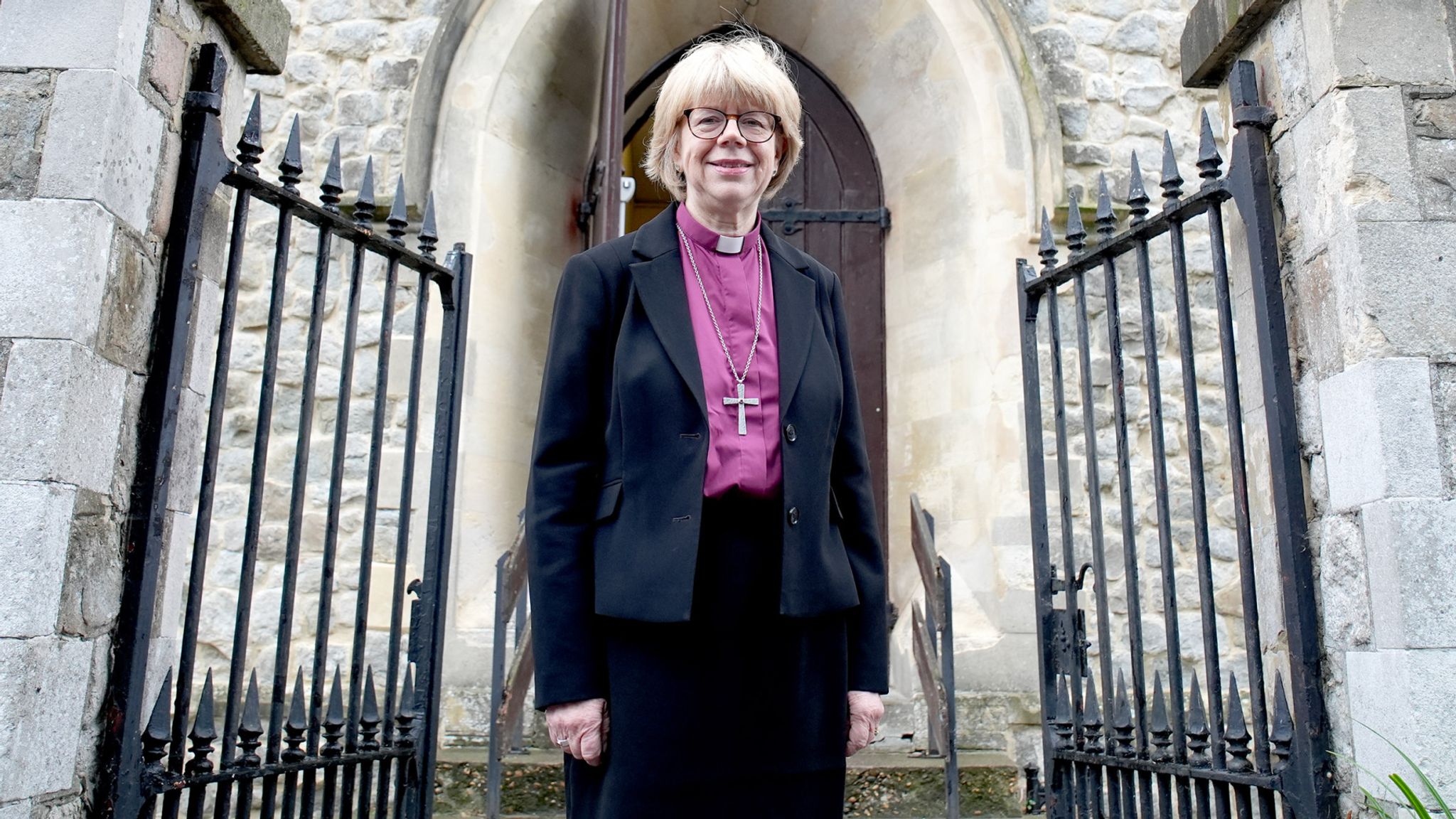
Church of Nigeria Declares Spiritual Independence Over Appointment of Pro-Gay Female Archbishop of Canterbury
The Church of Nigeria (Anglican Communion) has declared its spiritual independence from the Church of England following the appointment of Bishop Sarah Mullally as the new Archbishop of Canterbury.
In a statement issued by the Primate of the Church of Nigeria, Most Rev’d Henry C. Ndukuba, the Church described the appointment, announced on Friday, October 3, 2025, as “devastating” and “insensitive.”
According to the statement, the development represents a “double jeopardy” for the global Anglican faith.
“First, it disregards the conviction of the majority of Anglicans who cannot accept female headship in the episcopate; and second, it is deeply troubling that Bishop Sarah Mullally is a strong supporter of same-s+x marriage,” the statement read.
The Church referenced Mullally’s 2023 comments following the Church of England’s approval of blessings for same-s+x couples, where she called the move “a moment of hope.” Nigerian Anglicans said such views undermine efforts to preserve unity and moral integrity within the global Anglican Communion.
“It remains unclear how someone who upholds same-s+x marriage can hope to heal the already fractured fabric of the Communion,” the Church stated, arguing that Anglicanism can no longer rely on the moral and spiritual leadership of the Church of England.
Reaffirming its alignment with the Global Anglican Future Conference (GAFCON), the Church of Nigeria said it would continue to uphold “biblical authority, the historic creeds, evangelism, and holy living—irrespective of the ongoing revisionist agenda.”
The statement concluded with a rallying call for conservative Anglicans across England and beyond:
“We encourage all faithful brothers and sisters in the Church of England who have resisted the aberration called same-s+x marriage to continue contending for the faith once delivered to the saints (Jude 1:3).”
Follow BONA NAIJA for more
Religion
“God Has Settled It” – Pastor Jerry Eze’s Prayer Session Draws Global Audience
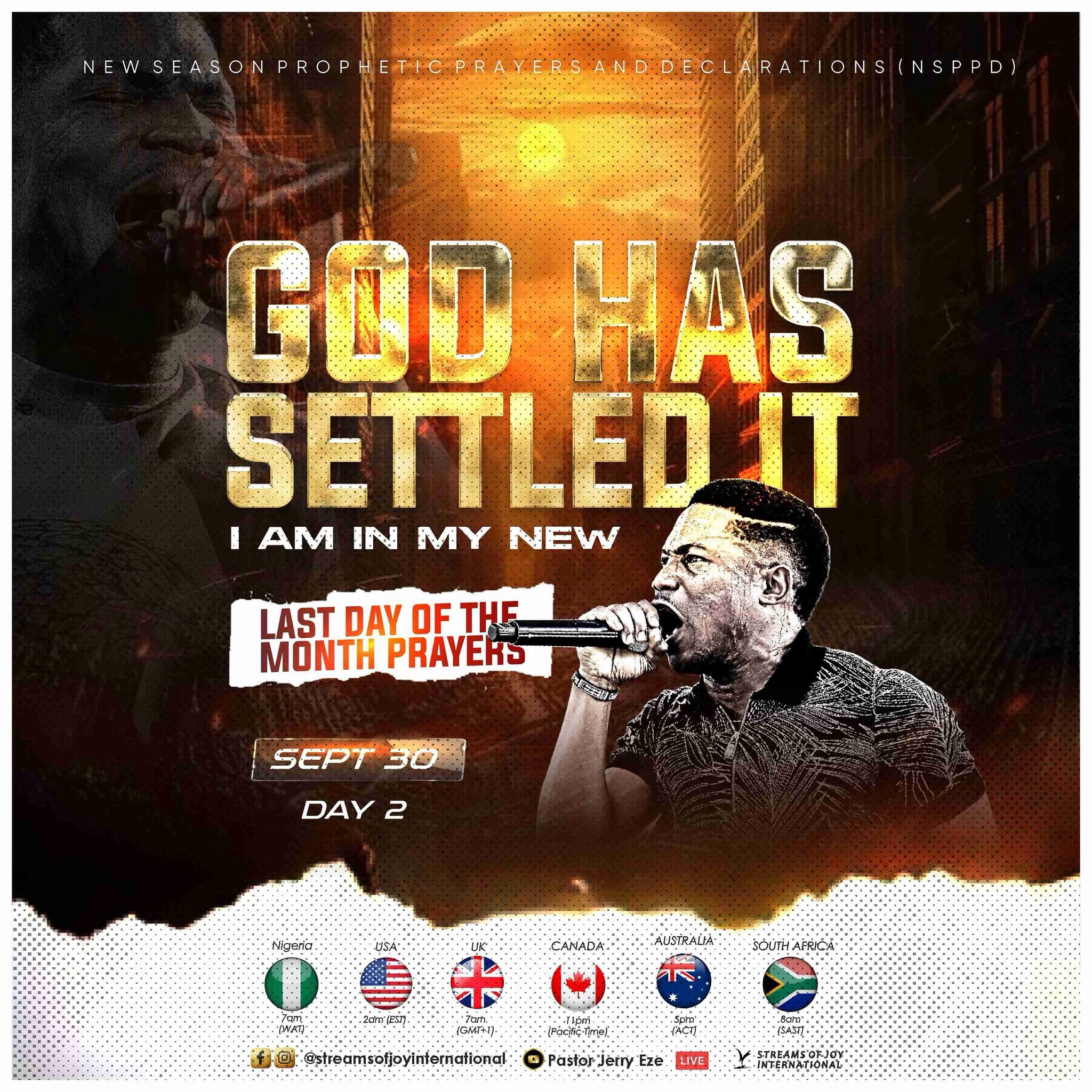
Nigerian preacher Jerry Eze drew millions of viewers worldwide on his LAST DAY OF THE MONTH PRAYERS tagged “GOD HAS SETTLED IT” a daily online prayer service, showcasing the growing global influence of his New Season Prophetic Prayers and Declarations (NSPPD) platform.
Broadcast live from Abuja at 7 a.m. on Monday and Tuesday the session ran under the theme “God Has Settled It — I Am in My New,” with participants joining from Nigeria, the United States, Britain, the Philippines and other countries.
Eze, founder of the Streams of Joy International church, has hosted the digital service every weekday since 2020, drawing a following through social media and YouTube. His slogan, “What God Cannot Do Does Not Exist,” has become a rallying cry for his supporters.
During the Monday and Tuesday’s last day of the month broadcast, users posted testimonies online of new jobs, family reconciliations, visa approvals and home purchases, reflecting the fervour that has helped turn the NSPPD into one of the most watched online prayer meetings in Africa.
Eze, 43, is part of a new wave of Nigerian pastors expanding their ministries beyond church walls by using technology to reach audiences across continents.
Follow BONA NAIJA for more
Religion
Over 7,000 Christians Killed in Nigeria So Far in 2025 – Intersociety
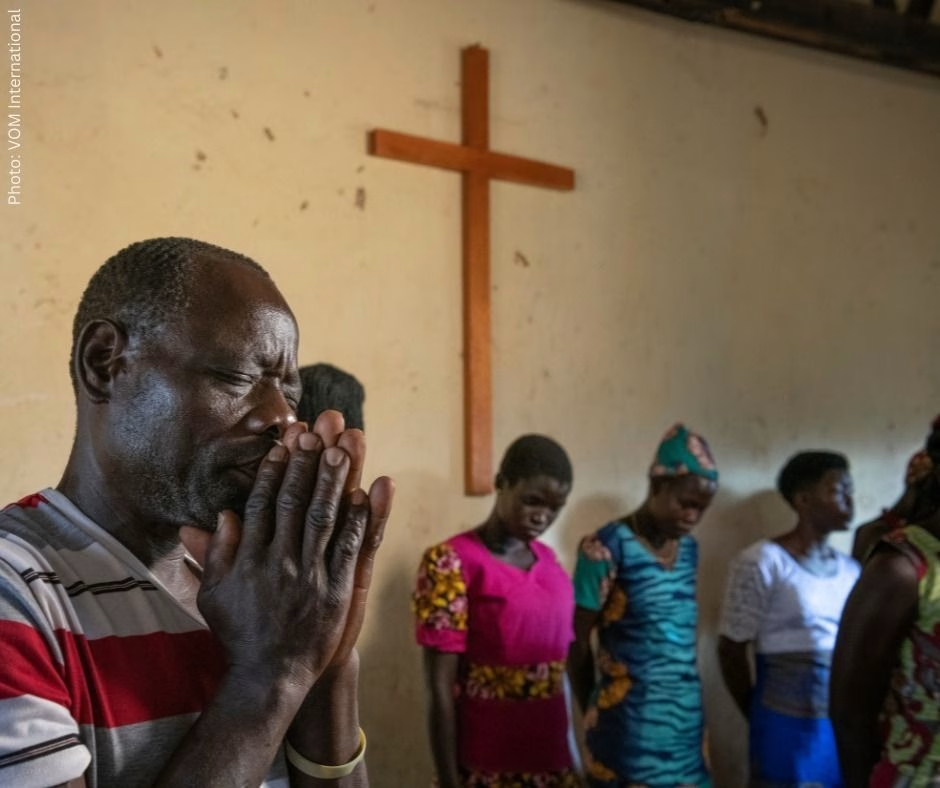
More than 7,000 Christians have been killed in Nigeria since the start of the year, largely in attacks by Islamist militants and armed groups, according to a report published by the International Society for Civil Liberties and the Rule of Law (Intersociety).
The rights group said 7,087 Christians were killed and 7,800 abducted between January 1 and August 10, an average of nearly 30 deaths per day. It cited Boko Haram, Islamic State West Africa Province (ISWAP), and radicalized Fulani herdsmen as the main perpetrators of the violence, which has hit Nigeria’s northern and Middle Belt states hardest.
Communities have reported churches burned, homes destroyed, and farmland seized in what advocacy groups describe as an escalating campaign of persecution. Benue, Plateau, and Kaduna states were listed among the worst-affected regions.
Nigeria ranks sixth on the 2025 World Watch List of countries where Christians face the most severe persecution, according to Open Doors, an international advocacy group.
The government has intensified military operations in the north and Middle Belt, but critics say it has failed to protect vulnerable rural populations. Officials often argue that some of the violence is driven more by land disputes and banditry than by religion.
Christian advocacy groups have urged stronger international attention. “The scale of killings and abductions cannot be ignored,” Intersociety said in its report, warning that attacks are continuing “with devastating regularity.”
Follow BONA NAIJA for more
Abuja
Catholic Church Rewards Academic and Behavioural Excellence in Abuja

The Catholic Men Organisation (CMO) of St. Agnes Catholic Church, Wuye District, Abuja, has concluded the 2025 edition of its Prize for Academic and Behavioural Excellence, an annual initiative aimed at rewarding hard work, discipline, integrity, and scholastic achievement among children of the parish.
Prizes and certificates of recognition were formally presented to winners during a brief ceremony held after Sunday Mass.

Now in its third year, the initiative was introduced in 2023 to extend the traditional role of fathers in guiding their children beyond individual homes and into the wider parish community. The prize also serves as encouragement for children whose fathers may not be present, ensuring they receive mentorship and recognition within the Church family.
Speaking at the event, Mr. Jude Nnadozie, President of the CMO of St. Agnes Parish, stressed the need for continued guidance in children’s lives.
“As fathers, we shape our children by guiding their academic, moral, and spiritual growth, while also leading by example. Beyond our individual homes, the CMO makes us one fatherhood, and the parish our family. We must therefore extend the same guidance and leadership to build a stronger faith community. This annual exercise helps us achieve that,” he said.
Highlights of the 2025 edition included:
– Recognition of over 50 children who participated in the summer academic excellence program.
– A brief talk on Dyslexia, emphasizing that less-than-excellent academic performance does not define a child’s potential or future success.
– Presentation of prizes and certificates of excellence to three winners each from the primary, secondary, and tertiary categories.
– A symbolic toast to the 2025/2026 academic year, encouraging students to sustain their efforts and contribute meaningfully to society.
The event enjoyed full support from Rev. Fr. Godwin Oje, the Parish Priest, as well as the Parish Council and the Catholic Women Organisation, reaffirming the Church’s commitment to education, moral upbringing, and nation-building.
About the CMO
The Catholic Men Organisation (CMO) is the umbrella body of all adult Catholic men in parishes across Nigeria, with structures at parish, diocesan, provincial, and national levels.
The CMO fosters spiritual growth, moral discipline, and active participation in the Church, while also extending mentorship and support to families and children.
Follow BONA NAIJA for more
Religion
“Seek Holiness in Ordinary Life” Auxiliary Bishop Obodo to Members and Friends of Opus Dei

At a solemn Mass marking the 50th anniversary of the death and the 100th anniversary of the priestly ordination of St. Josemaría Escrivá, founder of Opus Dei, Most Rev. Ernest Obodo, Auxiliary Bishop of Enugu, delivered a homily on the theme “Duc in altum – Put out into the deep”, drawn from the Gospel of the day.
Bishop Obodo began by reflecting on how Jesus met people in their ordinary daily lives, not merely to perform miracles, but to preach the Word of God. Jesus found people hungry for the word but was looking for a platform to reach out to them before he found Peter’s boat. He noted how Christ used Peter’s fishing boat as a platform to reach the crowd, highlighting that evangelization begins with the ordinary—right where people live and work.
In that spirit, he praised St. Josemaría’s spirituality, which teaches that the world is not evil, for it was created good by God. “Running away from the world is a spirituality that is contrary to God’s will,” the bishop said, adding that Opus Dei promotes sanctification of the world from within, not escape from it.
Quoting St. Josemaría, he emphasized:
“You must realize now more than ever that God is calling you now to serve Him in and from the ordinary secular activities of human life. He waits for us every day in the laboratory, in the operating theatre, in the army barracks, in the university chair, in factories, in workshops, in the fields, in homes, and in the immense panorama of work. Understand this well, there is something holy, something divine, hidden in the ordinary situations, and it is up to each one of us to discover it.”
He also cited the Second Vatican Council, which affirms that all the faithful, regardless of state in life, are called to holiness.

Opus Dei is a personal Prelature founded by St. Josemaria Escriva in Madrid on October 2, 1928 which seeks sanctity in the context of ordinary Christian life (holiness in the midst of the world).
Through their members and priests the work of Opus Dei has continued to nourish and serve the needs of the faithful and priests of the Diocese.
Bishop Obodo commended the contributions of Opus Dei members in various fields such as banking, education, and agriculture, and urged them to extend their witness to areas in Nigeria that require urgent moral and ethical renewal—politics, the military, INEC, and the leadership of the police force. “We have a duty,” he stressed, “to sanctify our nation and proclaim the Gospel right from where we are.”
Reflecting further on the Gospel, he said “like Peter we are meant to obey the Lord who asked him to throw his net despite his failed efforts. Citing St. John Chrysostom, the bishop noted, “God does not need our efforts; He needs our obedience.” He lamented the growing lack of obedience in families, parishes, and institutions, urging a return to faithful trust in God.
He concluded with a reflection on generosity and divine reward, reminding the faithful that all we have belongs to God, who doesn’t need our permission to use it. “Jesus used Peter’s boat and later rewarded him with an abundant catch. As Scripture says, ‘Give, and it will be given to you… the measure you give is the measure you will receive’ (Luke 6:38).”
Bishop Obodo closed by affirming that the core message of St. Josemaría is the call to transform the world through holiness in the ordinary, beginning in the little corner where each person finds themselves.
**Report from The Choice Flame**
Follow BONA NAIJA for more
-
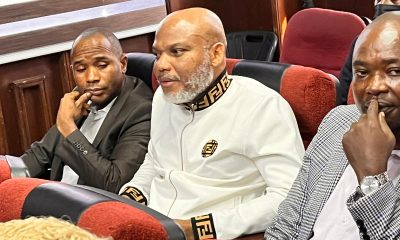
 Abuja3 weeks ago
Abuja3 weeks agoIPOB Leader Nnamdi Kanu Declines to Enter Defence, Insists “No Case” Against Him
-

 World News2 weeks ago
World News2 weeks agoUS Military Submits Contingency Plan for Action in Nigeria
-

 World News3 weeks ago
World News3 weeks agoTrump asks Pentagon to immediately start testing U.S. nuclear weapons
-
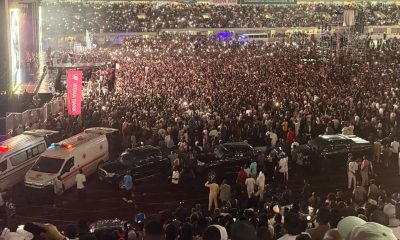
 Entertainment3 weeks ago
Entertainment3 weeks agoDavido Kicks Off ‘5ive Alive’ Tour with Sold-Out Uyo Stadium Show
-

 Music3 weeks ago
Music3 weeks agoMusic: Badshah and Davido Launch Cross-Cultural Hit “Wallah Wallah”
-

 Entertainment3 weeks ago
Entertainment3 weeks agoBurna Boy Makes Twitch Debut with PlaqueBoyMax in Freestyle Session
-

 Music News2 weeks ago
Music News2 weeks agoBurna Boy, Davido, Ayra Starr, Wizkid Lead Nigeria’s Charge in 2026 Grammy Nominations
-

 News2 weeks ago
News2 weeks agoGround Operation, Air Strikes Could Be Part of US Attack in Nigeria – Trump
-
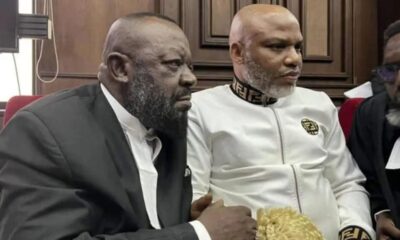
 Biafra3 weeks ago
Biafra3 weeks agoAnxiety as Nnamdi Kanu’s Lawyer, Aloy Ejimakor, Collapses in Kuje Prison
-
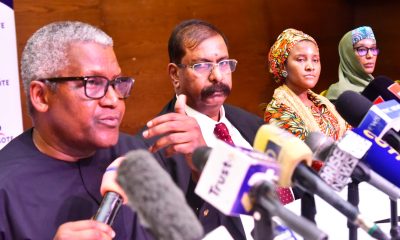
 Business3 weeks ago
Business3 weeks agoAliko Dangote Urges Nigerians to Sell Dollars as Naira Strengthens on Refinery Boost



























